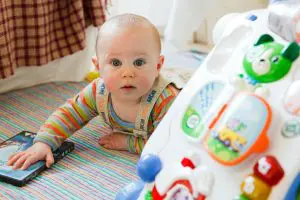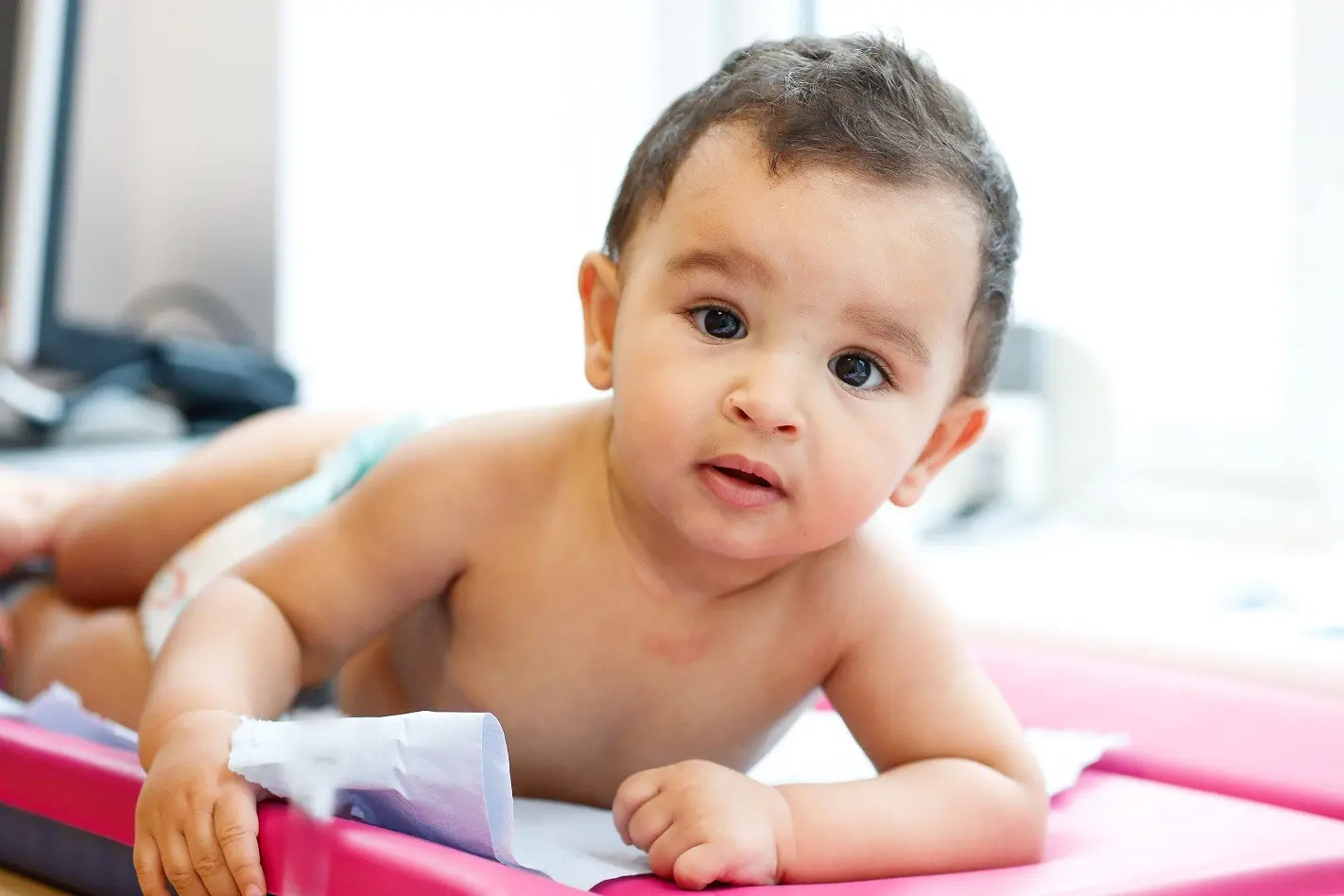19th February 2021
A voices blog by Julia Haynes, Fellow of the Institute of Health Visiting for initiating the NHS Born to Move app and programme in Kent, Runner up in the Royal College of Nursing Innovations in Community Care Award 2018.

Image by PublicDomainPictures from Pixabay
For new parents, a baby arriving with no instruction manual has always been a challenge. Throughout my thirty years of health visiting practice, there has never been a time of such isolation for families than our current experiences during lockdown. Many parents are wondering if their child is developing physically at the right rate and whether this is affected by our limited interactions and socialisation with others.
On the other hand, a huge benefit of lockdown is that babies have had more time at home, out of ‘containers’ such as car seats and prams, which allows more opportunities for floor play and awake tummy time, to develop core strength in preparation for crawling.

It may be reassuring to know that babies instinctively know the movements to do in order to help their bodies move and strengthen in the first few months. Every movement helps their brains to develop new connections every day, as they learn to have conscious control of their bodies. As a parent, the most beneficial thing you can do is to provide a comfy warm safe space for supervised awake “tummy time” to take place regularly to support physical development. Parents can support this development by starting with 1-2 minutes of “tummy time” at first, gradually build up awake tummy time to at least 30 minutes a day by 12 weeks.
Babies will then progress to crawling which is the first ‘cross patterning’ (opposite arm and leg) movement that babies develop. This strengthens their core muscles and coordination for sitting and walking. It also strengthens their arms and hand muscles. Reassuringly, in these anxious times, it also supports their cognitive development as it strengthens the connections between the left and right sides of the brain which boosts the child’s problem-solving skills.
Another crucial thing that parents and carers can do is to talk to their baby/toddler about everything – the things that they see and do, through everyday activities and chores. This helps babies make links in their brains between what they see, hear and do, whilst also developing their communication skills. The good news is that babies are born ready to communicate. The earlier you start talking to your baby, the sooner they will understand their world and communicate effectively.
Eyes need to move too; the development of the eye muscles is often forgotten about when thinking about physical development. When a baby watches you, a sibling or pet moving around your home, bubbles floating in the air, or a toy moving, they are learning to follow with their eyes. This eye tracking is an essential skill that is needed for reading later, and is best developed through active play. Limit screen time as much as possible as this reduces a child’s visual field and does not strengthen eye muscles in the same way.
So, when should a parent worry? The simple answer is ‘If in doubt, check it out’ and ask your health visitor. Over the last year the health visiting service has had to adapt its delivery model, as some services were temporarily stopped or offered virtually to comply with guidance to reduce the transmission of COVID. As a result, in some areas fewer children are being seen face-to-face by health professionals during lockdown. If this opportunity has been missed, there are things that parents can look out for. Most babies can:
- Hold their heads up by 3-4 months.
- Move both arms and legs by 3 months, parents should also notice that the baby’s kicks are getting stronger.
- Sit and roll over by themselves by 8 months.
So, if a parent is concerned about a 3-month old baby who cannot hold their head up, or who appears not to be moving limbs on one side of the body as much as the other, or seems floppy, then do talk to your health visitor and/or GP to get the baby seen and assessed. Early identification of any additional needs is important as it can make sure that the right support is put in place as soon as possible, which we know can make a big difference.
For most children, regular movement opportunities from the start will help normal child development. Your time in general, and spent on movement opportunities, are the most beneficial things you can give your child.
For more simple tips and useful links from “birth to school ready” check out the NHS Born to Move app, B2M or follow this link:
https://www.kentcht.nhs.uk/service/kent-baby/born-to-move/
We know that this is a worrying time for many parents and some parents are finding living during a pandemic really tough – you are not alone.
Remember: You can contact your health visitor if you are concerned or worried about yourself or your child’s health and wellbeing – they are there to help you find the support you need.
Julia Haynes, Fellow of the Institute of Health Visiting for initiating the NHS Born to Move app and programme in Kent

